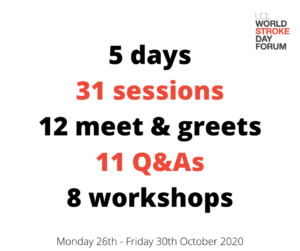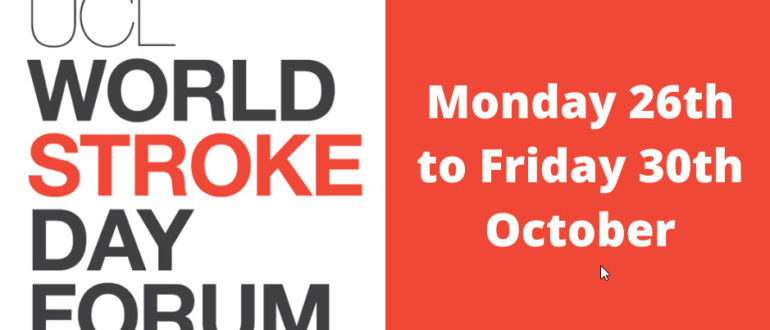How To Use A Mirror Box
Place your affected limb (hand or foot) in the box and the unaffected limb in front of the mirror. Then whilst looking at the reflected image and doing gentle symmetrical exercises it appears that the affected limb is moving normally.
Survivors with limited motor movement need to visualise and attempt to move the affected limb whilst simultaneously moving the unaffected limb in the same way.
They're not terribly expensive (around £30) so maybe worth you trying?
If you want someone to show you what to do then call us on 0203 053 0111 or email support@arni.uk.com and we'll see if there's a trainer near you who can help.
w#ARNIstrokerehabAR#arnistrokecharityn#strokec#strokesurvivorsst#neuroplasticityn#neurorehabit#mirrorboxtherapyirrorboxtherapy
... See MoreSee Less
Reclaiming your creative spark is often the most profound way to rebuild your identity after a neurological 'storm'. ARNI friend Matt Grimsdale's journey serves as a powerful testament to this resilience, as he transitioned from a career teaching English across Istanbul and Spain to finding his true 'voice' through the art of songwriting 🎸.
Having already released four albums, Matt was in the midst of his fifth project when his life was abruptly altered in September 2021 by an aneurysm and a subsequent stroke on Saint Matthew's Day. After navigating a period of deep depression where the music felt temporarily lost, he found the courage in early 2025 to return to his craft, finally releasing the raw and deeply personal album 'Really Sick'. The featured track, 'Second by Second', which you can experience at www.youtube.com/watch?v=YMxGn_UXWFE, explores the 'devastating end' of a twenty-year relationship with an emotional honesty that resonates with anyone who has had to rebuild their world 🎤✨.
Matt’s incredible drive to finish what he started perfectly mirrors the ethos of the ARNI Stroke Rehab UK Institute, which encourages survivors to refuse a 'dead end' and instead find innovative ways to drive their own neuroplasticity through meaningful action 🧠🦾.
The ARNI Charity remains committed to the belief that recovery is about more than physical movement; it is about the 'satisfying and enjoyable' reclamation of the passions that make us who we are. For Matt, music provided the ultimate bridge back to his sense of self, proving that the creative spirit can survive even the most challenging medical setbacks.
We're keen to know if others in our ARNI Stroke Rehab & Recovery community have also discovered the 'healing power' of making music or singing during their own rehabilitation journeys? 🎹🌟.
Singing, in particular, is often a 'secret weapon' for those in the UK who have faced the isolating barriers of aphasia, as the brain frequently retains the ability to sing lyrics even when spoken conversation feels temporarily locked away. Have you used singing as a specific strategy to combat aphasia or to process the 'raw emotions' of your recovery? 🦾🌈.
... See MoreSee Less

Exercise: Kneeling
I am a big fan of kneeling practice, and I credit it with a great deal of my ability to deal with foot drop on a daily basis. Kneeling primarily affects your ankle, tops of your feet, knees, hip joints, and the muscles of your legs, buttocks, abdominals, and back. If you have foot-drop, it is going to be very painful at the start. You may end up leaning much more on your good side at first. . Clearly if the pain is sharp, you must adjust until you just feel a good stretch.
Technique: Please bear in mind that the weight shift shown in the diagrams does not present the ideal, but the reality of sitting on top of a foot that does not have integral supportive strength. Adaptations are sometimes necessary. For full instructions on how to do this exercise it's fully explained in in The Successful Stroke Survivor book by Tom Balchin
www.arni.uk.#neuroplasticityi#strokerecoveryo#strokesurvivorsi#strokerehabilitationa#neurorehabilitationa#StrokeRehabr#arnistrokecharitya#strokeexerciser#neurorehabrehab
... See MoreSee Less
Exercise: Kneeling
I am a big fan of kneeling practice, and I credit it with a great deal of my ability to deal with foot drop on a daily basis. Kneeling primarily affects your ankle, tops of your feet, knees, hip joints, and the muscles of your legs, buttocks, abdominals, and back. If you have foot-drop, it is going to be very painful at the start. You may end up leaning much more on your good side at first. . Clearly if the pain is sharp, you must adjust until you just feel a good stretch.
Technique: Please bear in mind that the weight shift shown in the diagrams does not present the ideal, but the reality of sitting on top of a foot that does not have integral supportive strength. Adaptations are sometimes necessary. For full instructions on how to do this exercise it's fully explained in in The Successful Stroke Survivor book by Tom Balchin
www.arni.uk.#neuroplasticityi#strokerecoveryo#strokesurvivorsi#strokerehabilitationa#neurorehabilitationa#StrokeRehabr#arnistrokecharitya#strokeexerciser#neurorehabrehab
... See MoreSee Less
The life of a teacher who had a stroke at Capital City College in Camden was saved on Friday, 30 January 2026, thanks to the decisive and heroic actions of colleague Chris Egwuma. When the medical emergency struck at the Alexandra Centre, Chris was forced to utilise his first-aid expertise and deploy an on-site defibrillator and commence CPR on his unresponsive colleague, ensuring that vital blood flow was maintained during those first critical minutes.
This display of quick thinking reminds us all that immediate intervention is the most powerful tool we have in the fight against stroke, providing the essential foundation for any future recovery and long-term independence 🚑🧠
Such stories of survival highlight the vital importance of the work undertaken by the ARNI Stroke Rehab UK Institute, which focuses on the intensive, long-term journey that begins after the emergency is over. While the ARNI Charity supports survivors in reclaiming their functional abilities through specialised physical training, for sure, without first responders like Chris, many would never reach the stage where rehabilitation is even possible...
www.arni.uk.com
#ARNIstrokerehab #strokehero #camdennews #lifesavingaction #strokerecovery2026
... See MoreSee Less
Jeanette had a stroke. Her dream was to recover fast and go back to work. She managed to achieve this within 3 month. In this video she talks about how she did it with the help of Senior ARNI Instructor Gabriella Pásztor.
Call us on 0203 053 0111 or email support@arni.uk.com if you want an ARNI Instructor to help you.
www.arni.uk.com
. #stroke #strokesurvivors #neuroplasticity #strokerecoverysuccess #strokesurvivors #strokesurvivorscan #neurorehabilitation #StrokeRehab #strokeexercise
... See MoreSee Less
Weight bearing exercises are a great way to improve communication between the brain and the arm. Since weight bearing exercises simply involve putting weight through the arm, these exercises can be integrated into daily activities or practiced as part of an exercise program.
Need some help to get started? Call us on 0203 053 0111 or email suport@arni.uk.com to arrange for an ARNI trainer to work with you.
www.arni.uk.com #strokerehabilitation #neurorehabilitation #neurorehab #strokeexercise #neuroplasticity #strokerecoveryexercises #StrokeRehab #exerciseafterstroke
... See MoreSee Less
Well, it's not just awful in England; the ambulance handover crisis in Northern Ireland has apparently reached a terrifying peak, with stroke patients forced to wait an average of two hours and 29 minutes last week just for paramedics to arrive.
This systemic collapse saw 11,072 hours of emergency capacity lost in December alone, effectively removing thirty ambulance shifts every single day from our roads. For a stroke survivor, these delays are not merely statistics; they represent a catastrophic loss of the golden hour where brain tissue is most salvageable.
To make matters worse, those trapped on unsuitable trolleys face the additional risks of dehydration and pressure damage, while staggering data reveals that any patient over 80 conveyed to hospital now faces an average stay of fifteen days regardless of their initial condition. 🚑📉
This harrowing reality reinforces why the mission of the ARNI Stroke Rehab UK Institute is more vital in 2026 than ever before, as we must focus on the most robust recovery possible once survivors finally make it through the hospital gates.
While the ARNI Charity works to provide the specialised training needed to overcome the disabilities caused by such delays, it is clear that the current pressure on our Emergency Departments is failing those who need time-critical intervention. For us stroke survivors, this situation highlights the absolute necessity of being proactive with a long-term ARNI (or other) physical management to build the resilience required to navigate a struggling healthcare system! 🧠🦾
www.arni.uk#ARNIstrokerehabR#strokecrisisr#NorthernIrelandHealthe#TimeIsBrainB#strokerecovery2026y2026
... See MoreSee Less
The path to recovery looks different for every stroke survivor. While no therapist can promise a complete recovery, it’s important to set ambitious yet realistic goals.
If you set your goals too low, you may stop before you’ve maximized your chances of recovery. But if your goals are too high, you might become frustrated before you’ve reached your full potential.
Therefore, it’s important to set realistic goals during stroke recovery, and keep setting higher goals as you progress. The more you improve, the more you are able to set new goals for a higher level of healing and recovery.
If you want some help call us on 0203 053 0111 or email support@arni.uk.com We have trainers throughout the country.
www.arni.uk.com
#neuroplasticity #strokerecovery #strokesurvivors #strokesurvivorscan #strokerehabilitation #neurorehabilitation #strokeexercise #neurorehab
... See MoreSee Less







4 Comments
I was very happy to uncover this website. I need to to thank you for ones time for this wonderful read!! I definitely loved every part of it and i also have you book-marked to see new information in your blog. Starla Coleman Larimor
I have found your series of DVDs very helpful and would be interested in a ‘virtual attendance’ at some parts of the conference.
Would you please let me have a copy of the programme list so that I can select the sessions in which I am interested?
Am I correct in assuming that ‘virtual attendance’ is free?
What areyou charging for this online conference, please?
Or, this year, is it free to attend?
Many thanks,
Sue
5 years post stroke